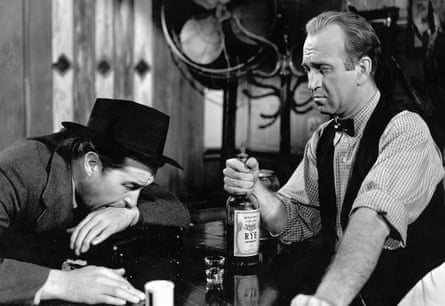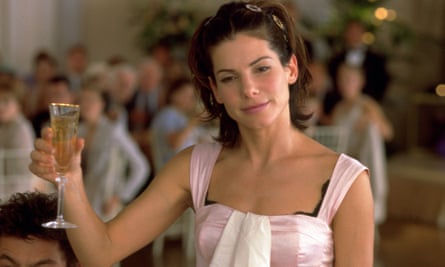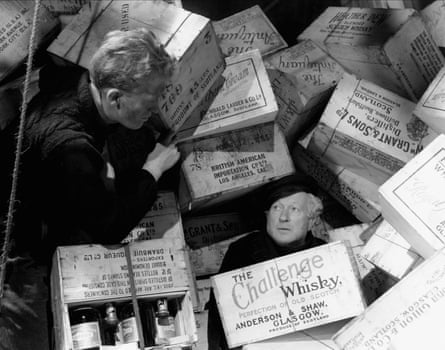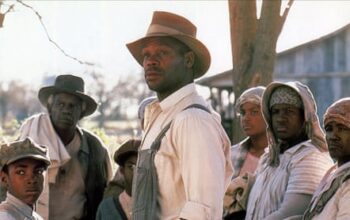I
I have never subscribed to the idea of dry January. With its serious and cold atmosphere, this month is already strict enough for me. However, regardless of whether one participates in the no-drinking challenge or not, January has become a time for reflecting on our relationship with alcohol, its impact on our lives, and finding other ways to fill the void.
The movies have always depicted alcoholism with varying levels of intensity. It is often portrayed as a comedic addiction, but cautionary dramas about drinking have been a staple in Hollywood for many years. Nearly 80 years ago, Billy Wilder won multiple Oscars for his film The Lost Weekend, which shocked audiences with its portrayal of a New York writer struggling with alcoholism. The protagonist, played by Ray Milland, is on a dangerous bender that could end his life, but is ultimately saved by the love and intervention of a good woman. Fifty years later, Nicolas Cage won an Oscar for his role in Leaving Las Vegas, a more bleak and fatalistic take on a similar story. As a suicidal screenwriter who goes to Las Vegas with the intention of drinking himself to death, Cage’s performance adds a sense of dignity to his tragic mission. Elisabeth Shue also delivers a powerful performance as a sex worker who accepts him without trying to save him.

In 1962, the film Days of Wine and Roses served as a cautionary tale for couples who rely on alcohol for enjoyment. The typically likable Jack Lemmon portrayed a tormented side as a PR executive who pulls his high-class, non-drinking wife, Lee Remick, into a world of martinis. While effective as a study of alcoholism within a marriage, the film lacks the unscrupulous and unrestrained impact of Who’s Afraid of Virginia Woolf? a few years later. In that film, Elizabeth Taylor and Richard Burton portrayed a senior university couple whose shared tragedy and mutual hatred were fueled by alcohol, perhaps serving as a warning to viewers about the dangers of excessive drinking.
During the mid-1990s, the film When a Man Loves a Woman portrayed the challenges faced by a seemingly perfect marriage due to the wife’s drinking problem. Meg Ryan’s bold performance reveals her character’s flaws, going beyond her usual “America’s sweetheart” image. Similarly, in 28 Days, Sandra Bullock plays a hard-partying journalist who finds herself in rehab and strives for a transformative experience. However, the film portrays the road to recovery as overly cheerful. In contrast, Italian filmmaker Ermanno Olmi’s masterpiece The Legend of the Holy Drinker (1988) tells the story of a homeless alcoholic who is given money to turn his life around, but struggles to overcome his addiction. It presents the tragedy of alcoholism in the form of a moral tale.

Not all movies about drinking have to be serious. The 2021 Oscar winner Another Round, directed by Thomas Vinterberg, explores the effects of day drinking through a group of schoolteachers. It strikes a delicate balance between examining the destructive potential of alcohol and its exhilarating rewards, culminating in a lively dance. Alexander Payne’s Sideways also features intoxicated male bonding. While its analogies between wine and life may seem cliché, it is a relaxed and enjoyable exploration of drinking – a cozy California counterpart to the rainy British hedonism of Withnail and I, which remains a comical celebration of bad habits. Alternatively, there is the gritty Americana of the intriguing hybrid documentary Bloody Nose, Empty Pockets, which serves as a worn, rosy tribute to dive bar culture and community.

The 1949 Ealing comedy Whisky Galore! is a cheerful film centered around alcohol. In the midst of wartime rations, a sudden abundance of the amber liquid brings new life to the inhabitants of an island. Similarly, prolific South Korean director Hong Sang-soo often incorporates the enjoyment of soju into his films, using it as a tool to develop characters and conversations. Unfortunately, not many of his films are available for streaming. In his most recent film, In Front of Your Face (2021), a character reveals a painful secret while under the influence. However, it is the 1950 film Harvey starring James Stewart that stands out for its unconventional portrayal of alcoholism. Stewart’s character is sympathetically portrayed as a happy bar-goer whose drinking buddy is an imaginary human-sized rabbit. This is seen as preferable to living as a “normal” human being. Here’s to that.
All titles can be rented on various platforms, unless stated otherwise.
Freshly added to the stream this week.
Steps for Sexual Intercourse
(Mubi)
Molly Manning Walker’s first film, which won recognition at Cannes, can now be streamed on Mubi. It provides a bright and lively burst of summer amidst the dullness of January. However, it’s not all carefree vacation antics in this keenly observed and energetically acted depiction of the gradual erosion of sexual boundaries during a girls’ getaway to Malia, Crete.

Smoke Sauna Sisterhood
A deeply therapeutic exploration of female connections, Anna Hints’s exceptional film follows a group of women at a traditional Estonian sauna located in the forest. Instead of focusing on individual features or figures, the documentary captures the shared experience of physical and emotional relief through fragmented yet respectful glimpses. Through careful listening, the film uncovers the full life stories that unfold amidst the steam.
The Exorcist: Believer
Formerly known as a leading voice in independent film, director David Gordon Green now takes a puzzling path towards utilizing horror franchises in his latest film, which serves as a lackluster comeback to the iconic demonic-possession genre. The presence of original stars Ellen Burstyn and Linda Blair may offer a hint of nostalgia, but it falls short of delivering any real prestige.
Source: theguardian.com


